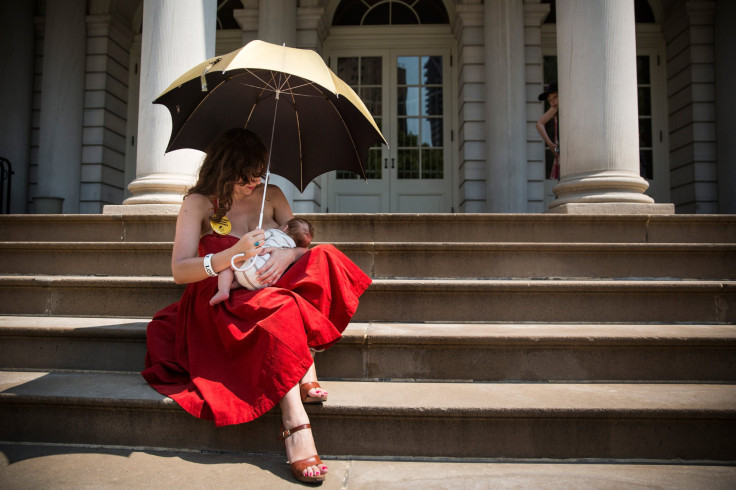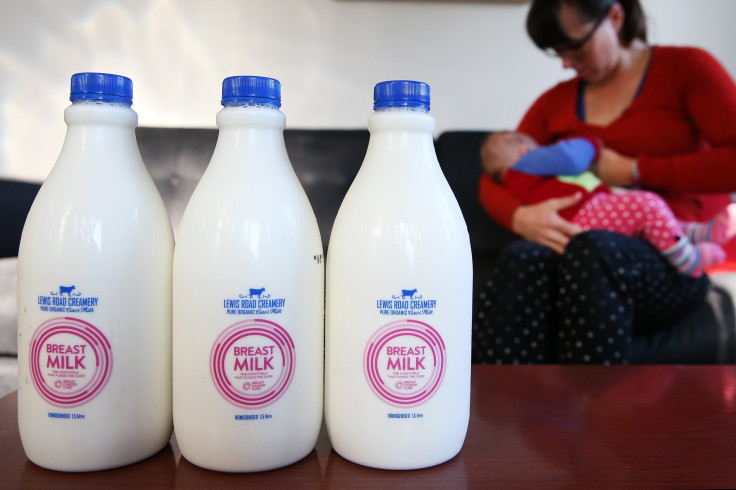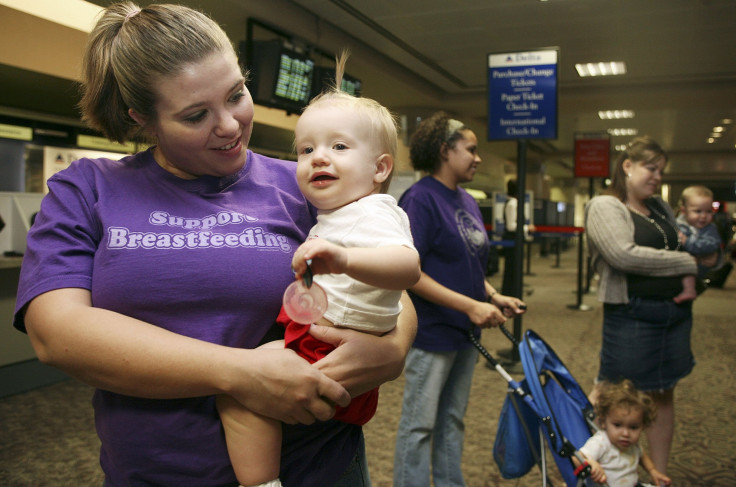World Breastfeeding Week 2017: When Not To Breastfeed Your Baby

World Breastfeeding Week stretches from Aug. 1 to 7 and is aimed at making young mothers aware of the benefits of breastfeeding which has long been considered to be the best nutrition for a newborn baby.
Even though it is recommended that newborn babies are to be breastfed until it is time for them to be weaned as a mother’s milk boosts the immune system of a baby and keeps him/her away from infections, yet there are situations when mothers are forbidden from breastfeeding.
Smoking, drugs, and alcohol are strictly forbidden for lactating mothers. That being said, if a woman is an addict and is habituated to taking drugs such as cocaine, PCP, heroin, marijuana and so on, she should not breastfeed her child as these substances may enter the newborn’s body through the milk. If the mother has consumed alcohol, she must wait for at least two hours for the alcohol to pass her system before she can breastfeed her child, News Medical reported.

Read: How Long Can You Breastfeed Your Baby?
Also, in case, if a mother is diagnosed with HIV, she is advised not to breastfeed her baby. Not only does the mother risk passing on the HIV virus to the baby, the antiretroviral medications that the former might be taking can also enter into the blood stream of the newborn, risking his/her health.
Similarly, mothers who are suffering from cancer and are undergoing chemotherapy medications are also advised to refrain from breastfeeding their child. Cancer-killing drugs often damage existing cells and reduce cell growth which can be detrimental to the baby if he/she were to ingest the same along with mother’s milk. Same goes for mothers who are undergoing radiation therapy, especially if it’s near their breast area.
If a mother has tuberculosis that has not been brought under control, she should not engage in breastfeeding. The same goes for mothers infected with human T-cell lymphotropic virus type I or type II.
Mothers are told to take extra precaution while feeding babies who are under three weeks old because they are yet to develop a resistant immune system and hence they are the most vulnerable to infections. For example, if a mother suffering from the flu, it is best that she stops breastfeeding for a while since her condition could be a contagious one, Parents reported.

Read: Australian Senator Larissa Waters Not Shy To Breastfeed Baby Again, While Addressing Parliament
Although it is a rare condition, babies who are suffering from a case of classic galactosemia (a medical condition where the baby is unable to digest breast milk because their body is unable to break down lactose and galactose) cannot be breastfed. Under such circumstances, mothers are advised not to breastfeed and instead treat their babies to a specially prepared diet which does not include sugar galactose.
Apart from the above-mentioned exceptions, a mother should not have an excuse to avoid breastfeeding. Mothers should also continue breastfeeding their newborns even when they are back to work from their maternity leave. For this reason, Cath Day, a registered dietitian and spokesperson for ADSA (the Association for Dietetics in South Africa), has urged companies around the world to allow private spaces where working mothers can feed their babies.
“It is clearly in the interests of the employers of child-bearing women to protect, promote and support them during the times when they are breastfeeding because companies need their employees to be healthy and optimally productive,” Day said, IOL reported.
Nowadays, human milk banks are set up for mothers who cannot breast feed their babies, the reason being that natural milk, even if it is from a different mother, is a much better option than processed formulas that are available in the market.
© Copyright IBTimes 2024. All rights reserved.






















